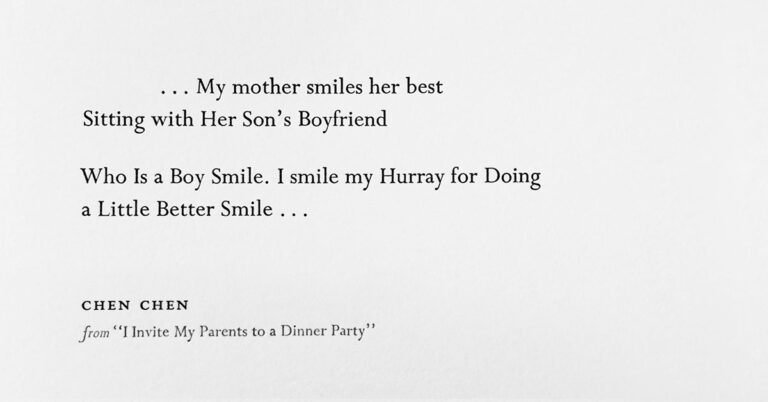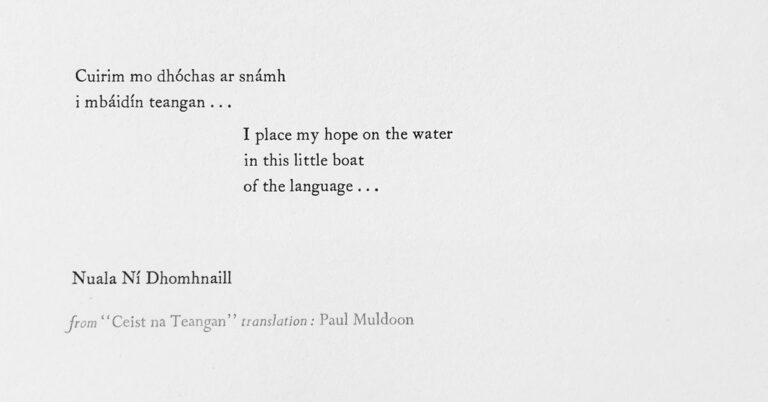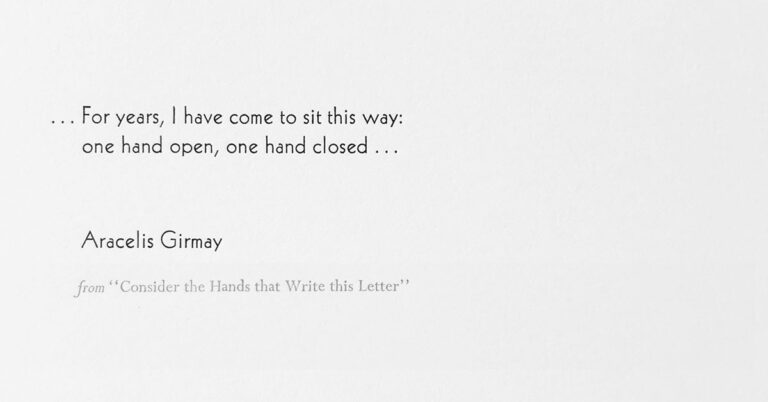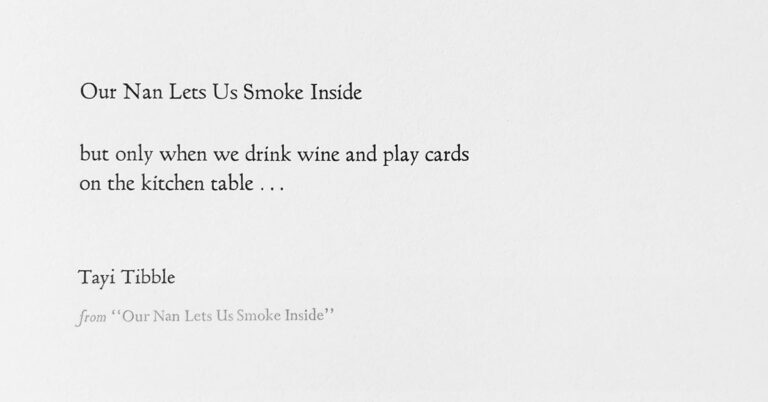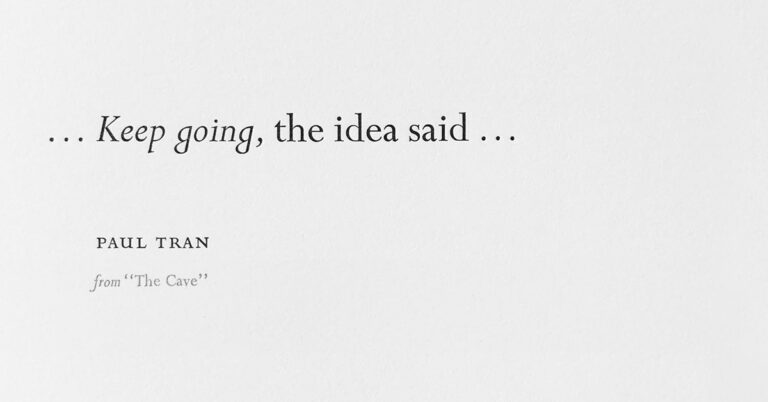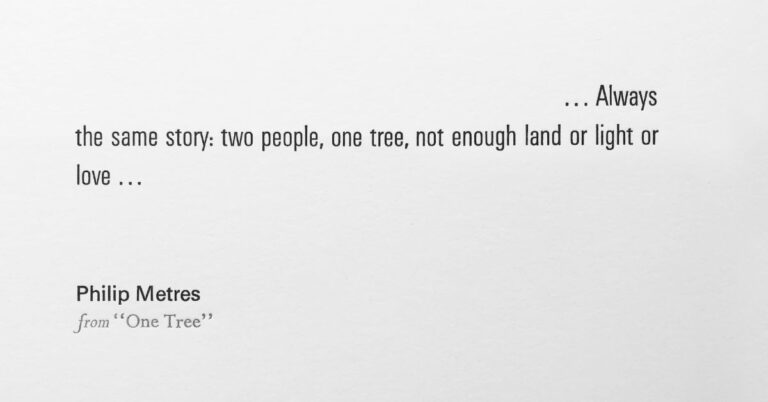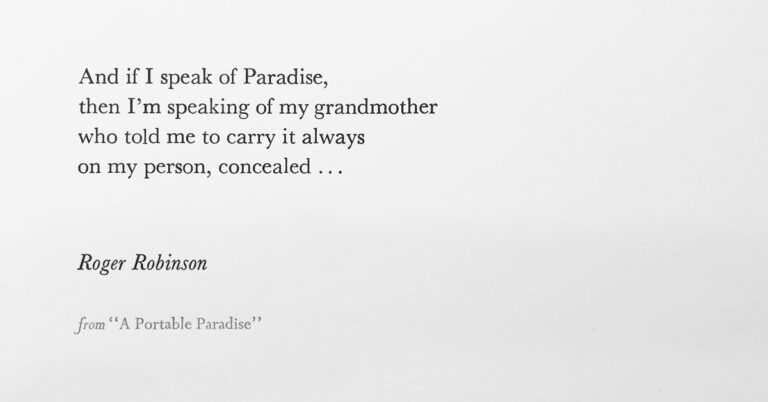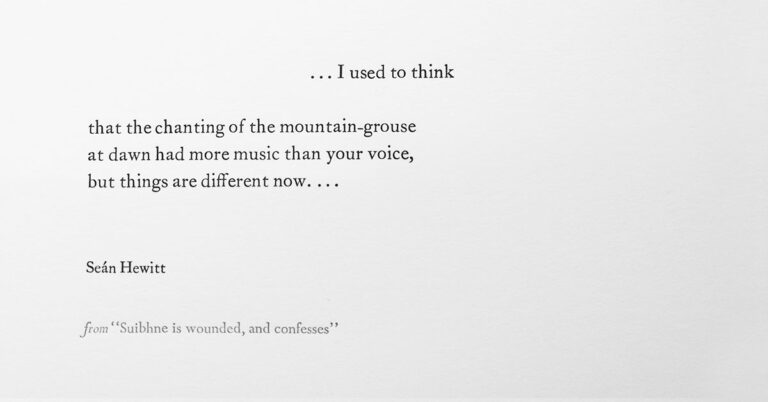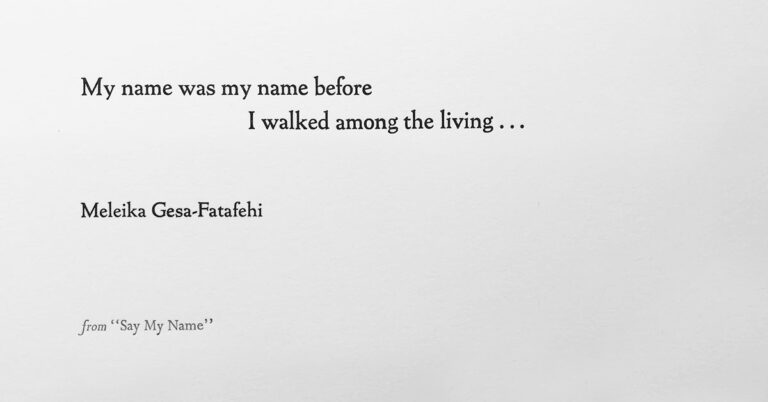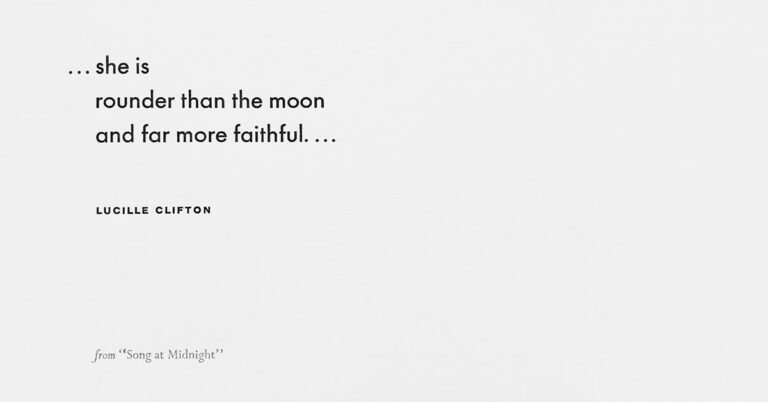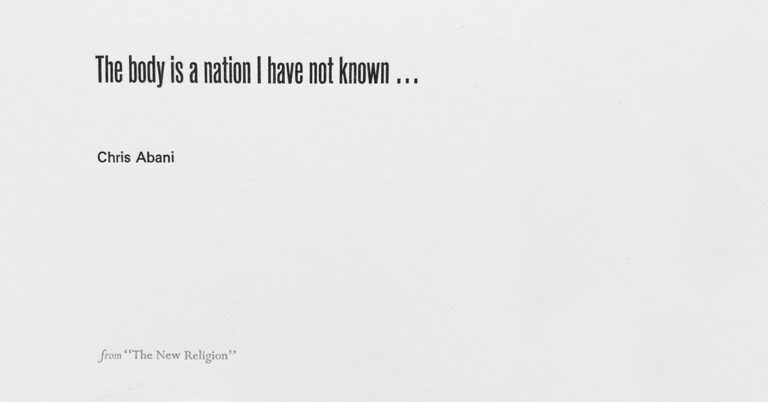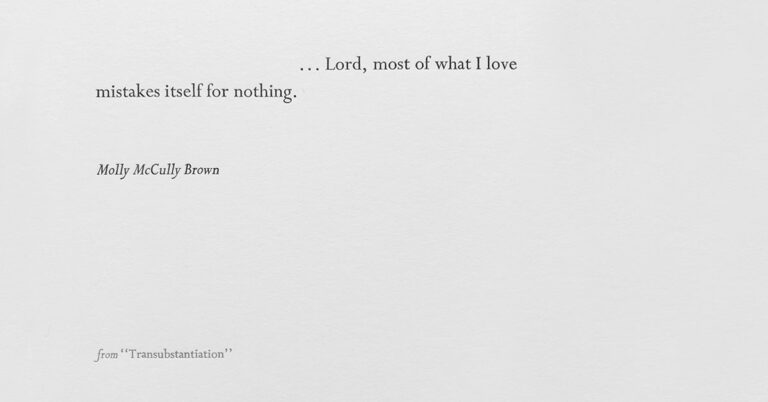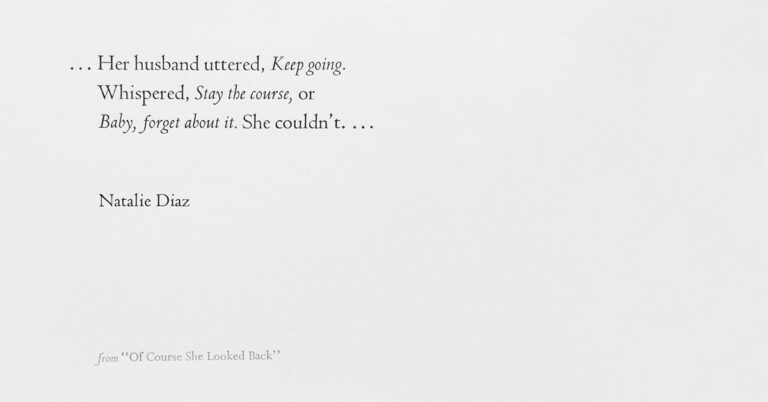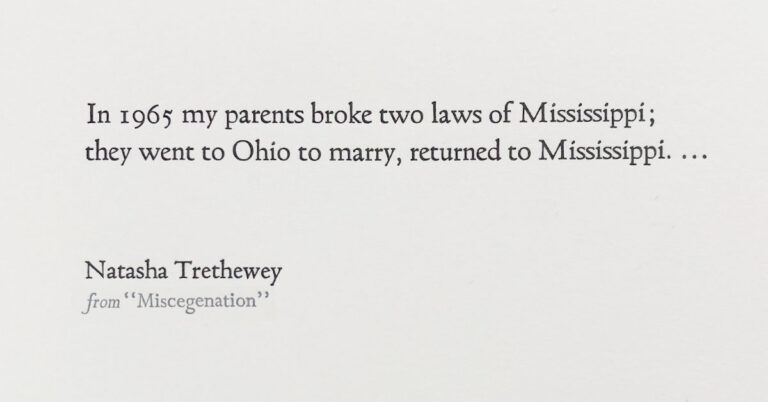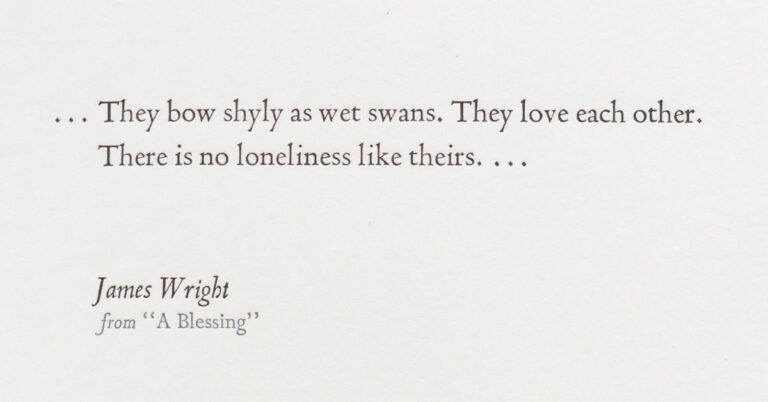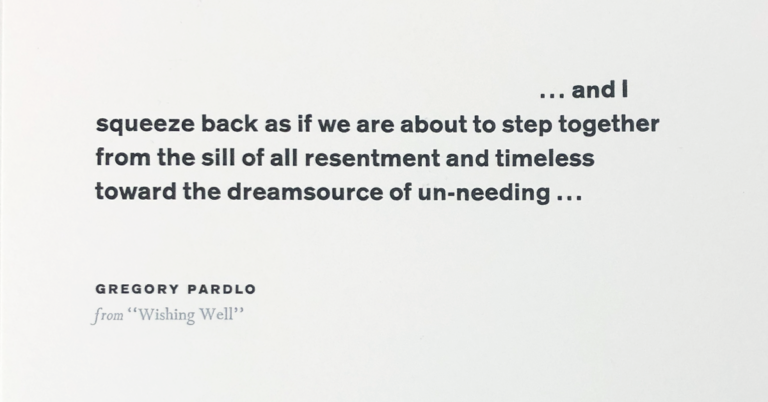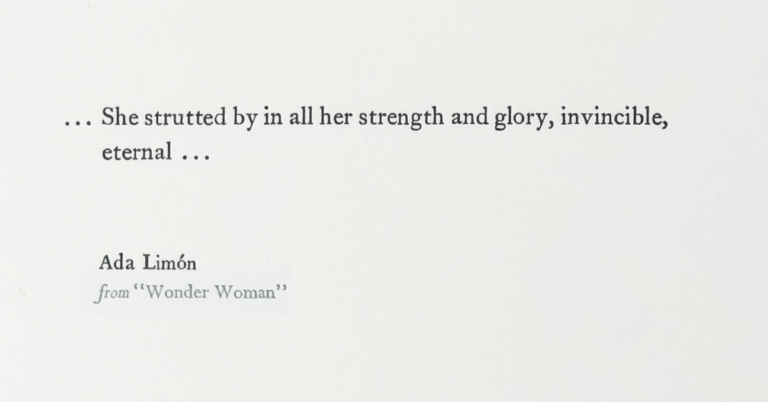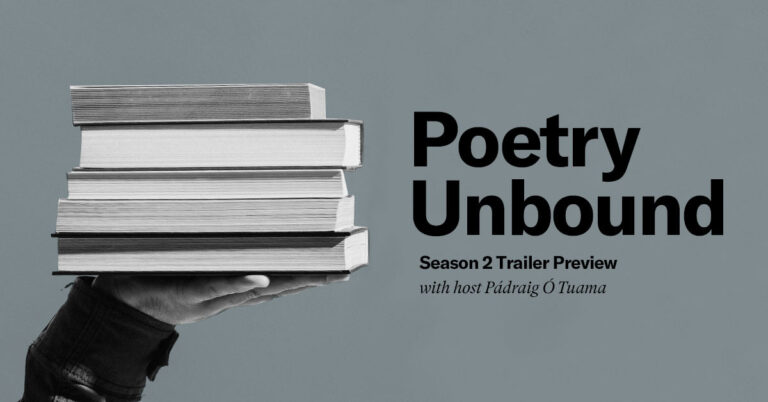November 23, 2020
Chen Chen
I Invite My Parents to a Dinner Party
Has a guest ever been a soothing influence on a complicated family gathering?
In this poem, a son writes to his parents and invites them to a meal, letting them know that his boyfriend will also be there. He gives instruction to his parents on how they should behave, parenting his parents. In all this family tension, the boyfriend’s question “What’s in that recipe again?” offers calm, and builds lines of connection that had otherwise seemed unlikely.






